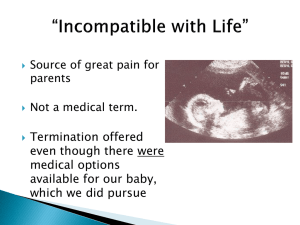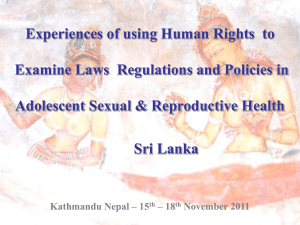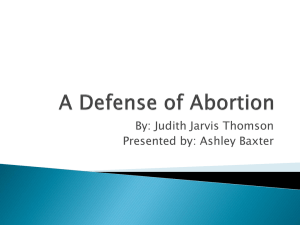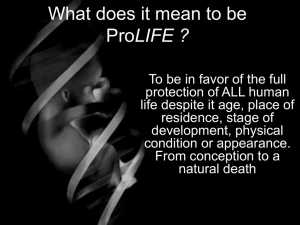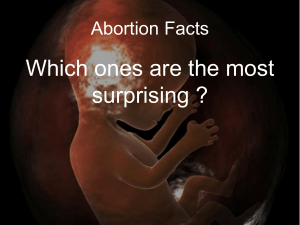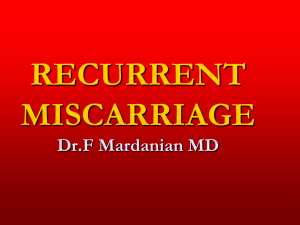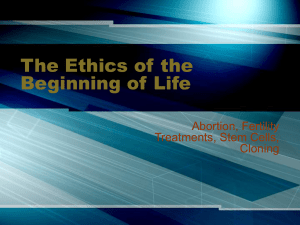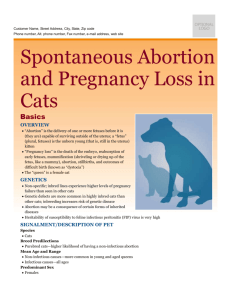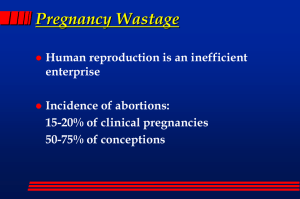abortion powerpoint final from 2012
advertisement
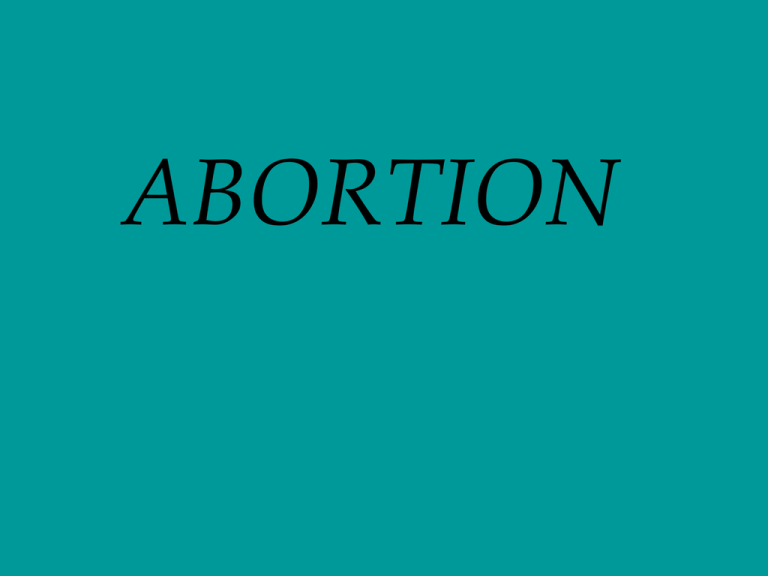
ABORTION THE CATHOLIC CHURCH “Human life must be respected and protected absolutely from the moment of conception. From the first moment of his existence, a human being must be recognized as having the rights of a person…” (2270 Catechism of the Catholic Church) “The Catholic Church’s pro-life teachings are based on sacred Scripture AND what is commonly called "natural law," the divine law written in our hearts and knowable by human reason....A person doesn’t have to be Catholic, Christian or even overtly religious to understand that human life is special among all creation and should not be violated by abortion. It is self-evident. “ (Helen Alvaré Catholic Update) VOLITIONAL ABORTION “Since it must be treated from conception as a person, the embryo must be defended in its integrity, cared for, and healed, as far as possible, like any other human being. (2274 Catechism of the Catholic Church) Direct abortion is gravely contrary to the moral law. (2271 Catechism of the Catholic Church) WHAT ABOUT CASES OF RAPE OR INCEST? According to the Church's vision of morality, no hardship, not even being pregnant due to rape or incest, gives a woman reason to have an abortion. If it is known that she is not already pregnant, a woman who has been raped or a victim of incest may seek immediate medical assistance- within a day- to prevent ovulation or kill the sperm, thus preventing conception from occurring. ( Emergency contraception or the Morning After Pill) “The Catholic Church teaches that artificial means of birth control are wrong, those methods that are abortifacient especially so.” (IUD) INDIRECT ABORTION Ectopic Pregnancy An ectopic pregnancy, tubal pregnancy, meaning literally, "out of place,” occurs when a fertilized egg is implanted outside the uterus, typically in one of the FALLOPIAN TUBES . About one of every 50 known pregnancies is ectopic. Ectopic Pregnancy • Once conception occurs, the fertilized egg usually takes about four to five days to travel down the tube from the ovary to the uterus. If the tube is damaged or blocked, or fails to propel the egg toward the uterus, the egg may become implanted in the wall of the tube and continue to develop there. Occasionally it may implant in another part of the abdomen, in an ovary, or in the cervix. Ectopic Pregnancy Although a woman must end an ectopic pregnancy, this is not looked at as a volitional abortion. Here the indirect abortion may be morally acceptable because the ending of the fetus' life was not the intended goal of the surgery. Instead, it was a tragic, undesired effect of saving the mother's life. Indirect abortion may occur as a result of efforts to save a pregnant mother's life, for instance, through removal of a cancerous uterus. Life and death are ultimately the dominion of God. LAW AND METHODS U.S. Law Within the first 2 months of pregnancy, medical abortion (RU486) or abortion by vacuum aspiration (Manual vacuum aspiration or dilation and suction curettage) can be used to end pregnancy. From 2-3 months, vacuum aspiration is your only abortion option during the first trimester. Partial Birth Abortion The Partial-Birth Abortion Ban Act of 2003, approved by Congress in October, is aimed at the less-common "partial-birth" abortion, medically known as an "intact D&E" or a "dilatation and extraction," or D&X, in which some of the procedure is performed inside the birth canal. But doctors who perform abortions say the bill's broad language covers all D&E procedures -- and could block virtually all abortions after the 12th week of pregnancy. (By Carol Cruzan Morton, Globe Correspondent, 10/28/2003 )

